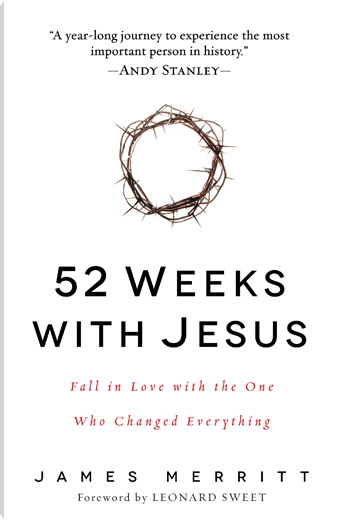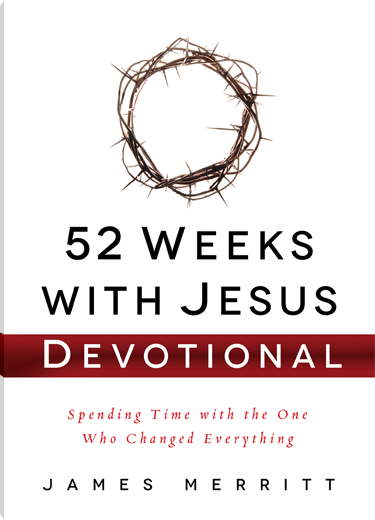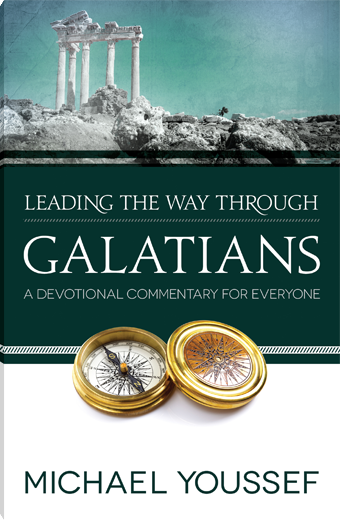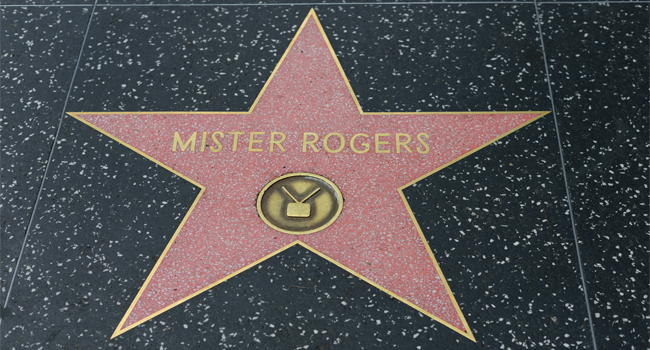-
Two Minutes in the Bible for Men
-
52 Weeks with Jesus
-
52 Weeks with Jesus Devotional
-
Two Minutes in the Bible Through Proverbs
-
Grace Walk Moments
-
Leading the Way Through Galatians
-
In the Stillness of Quiet Moments
I (Jordan) don’t think I’ve ever heard of a more Jesus-like person than FredRogers. He was as one biographer put it, “Mother Teresa in a cardigan.”73 Butif Rogers were here today, I’m confident he would remind us of two things.First, Jesus—not Fred—is the hero of this story. Second, the same Holy Spiritthat empowered Rogers’s extraordinary life now lives in you and me. So, wemodern mere Christians can glorify God through our work in much the sameway as Rogers did. How?
1. Mere Christians glorify God by embracingtheir position in God’s “royal priesthood.”Before Christ, priests and Pharisees had a lock on which vocations did “thework of the Lord.” But when Jesus, the Great High Priest, came to earth, hespent the vast majority of his life working not as a religious professional butas a mere carpenter.
That truth helps us understand what the apostle Peter said in 1 Peter 2:9when he claimed that every follower of Christ is now a member of God’s “royalpriesthood.” It’s no longer just literal priests who represent God in the worldand serve as conduits for his goodness. It’s every carpenter, entrepreneur, andbarista—any Christian doing genuinely good work.
How can that be true? Because God is now in each and every Christianthrough the power of his Holy Spirit. So, to quote the great preacher CharlesSpurgeon, for the believer, “nothing is secular—everything is sacred,” including your work as a mere Christian.74
Nobody embraced their position in God’s royal priesthood more enthusiastically than Fred Rogers, who believed he could do God’s work from behind a pulpit or a puppet—a conviction he literally took to his grave in the formof his “clergy tie.”
But Fred wasn’t just encouraged by the sacred label of his seemingly “secular” work. He glorified God by allowing that truth to shape his vocation. Heworked hard at the “good works, which God prepared in advance” for him todo (Ephesians 2:10), even though, given his family’s considerable wealth, henever had to work a day in his life. He used his platform to tell artistic parables of the kingdom of God. And he worked to be a priestly “repairer of creation,” redeeming what he saw was broken in the medium of television.
Fred said that “deep within each of us is a spark of the divine just waitingto be used to light up a dark place.”75 That is true of you, believer. Like FredRogers, you can glorify God in the “dark place” you work by embracing yourposition in the “royal priesthood” and viewing your job as a primary placeGod has called you to “let your light shine before others” (Matthew 5:16).
Take a moment right now to thank God for drafting you into the “royalpriesthood,” and ask him to show you how specifically he is calling you tomore faithfully represent him in your workplace.
2. Mere Christians glorify God by makingtime to experience their belovedness.Fred Rogers lived a wildly productive life. Over the course of Mister Rogers’Neighborhood’s thirty-one seasons, Fred personally wrote nine hundred scripts,two hundred songs, and thirteen operas. Even more impressive was how muchtime he spent personally showing compassion to thousands of hurting people off camera.
But here’s what’s most remarkable about Fred’s productivity: He accomplished more than most people ever dream while also spending more time withhis heavenly Father than most people ever dare.
He began each morning in silent prayer. At lunch, he would slip away tothe quiet of his office to meditate. Upon arriving home from the studio, hewould often spend another hour napping or praying before dinner.
As one of his friends put it, Fred “fiercely guarded his time of quiet andreflection.”76 And in this, he reflected his Savior who “often withdrew to lonelyplaces and prayed” (Luke 5:16).
Like Jesus, Fred wasn’t interested in silence for the sake of silence. “It wasn’tjust the absence of noise he advocated,” said a close friend of Fred’s, “but silencethat reflects on the goodness of God.”77
In other words, the spiritual discipline of solitude was a means to an end forFred Rogers: regularly experiencing the extraordinary love God had for him.A sign in Fred’s office explicitly reminded him of that love. It was a Hebrewprinting of Song of Songs 2:16: “My beloved is mine and I am his.”
It is precisely because Fred spent so much time quietly reflecting on hisstatus as a “beloved” child of God that he was able to share love so freely withGod’s other children. “He didn’t need anything from you or from me,” reflectedone of his coworkers.78 Because his sense of belovedness led him to “the freedom of self-forgetfulness.”79
The same can be true for you and me, believer. Like Fred, we will glorifyGod by making the time to abide in him and experience the belovedness thatfrees us to fully love our neighbors as ourselves (see John 15:1-8).
That could look like recommitting yourself to a morning “quiet time” beforework, setting reminders to meditate on God’s love throughout your day, orhanging a visual reminder of God’s love in your office. Whatever works for you,works. But abide we must if we long to glorify God more fully in our work.
3. Mere Christians glorify God by workingat a pace that allows them to extendGod’s love to others.It wasn’t just a sense of belovedness that led Fred to demonstrate otherworldlykindness to others. It was also his extraordinary lack of hurry.
When Fred’s biographer, Max King, was asked to sum up the message ofFred’s life in a single phrase, he said, “Slow down, be kind.” To Fred, thosethings were “directly related.”80 Because he understood that you and I must“slow down” in order to “be kind” and show God’s love to those we work with.Which is why Fred urged anyone who would listen to put their “dominantenergies into developing a sane design for living.”81
Here again, Jesus served as the perfect model for Fred. As pastor JohnMark Comer has pointed out, “If there’s anything you pick up from readingthe four Gospels, it’s that Jesus was rarely in a hurry.”82 Even when a child’slife hung in the balance, Jesus moved at a pace that allowed him to attend tothe suffering of one daughter on his way to heal another (see Mark 5:21-43).
You and I will glorify God when we model Jesus’s lack of hurry so that wecan extend God’s love to those we work with. And Fred Rogers shows us howto do that in a more modern context.
First, budget tons of margin into your calendar. If you think it’s going to takethirty minutes to get to a meeting, budget forty-five. It is exactly this kind ofmargin that allowed Fred to see and engage with the pain in his coworkers’lives, like the time he pressed the stop button in the elevator to bless a fellow producer.
Second, resolve to be with who you’re with. Not only did Fred not hurry, butalso, when someone entered his presence, he offered them the gift of feelingunhurried. There was no checking his watch. No glancing at mail on his desk.When Fred was with someone, regular time stood still, “Fred time” began,and “urgency seemed to dissipate,” as Fred made the other person feel like theimage-bearer of God they were.83 You can do the same today by silencing distractions and resolving to be fully present with who you’re with.
Finally, when you fail to be unhurried, choose the important over the urgent.Fred became more human to me when I heard his son say that there were dayswhen Fred “was rushing home from work, in order to sit down with [his family] for dinner.”84 As his biographer explains, even when Fred failed to haveenough margin in his calendar, he “never—ever—let the urgency of work orlife impede his focus on what he saw as basic human values: integrity, respect,responsibility…and of course…kindness.”85 God will be glorified when thesame is said of you and me.
_____________________________________________________________________________________________
73. Hollingsworth, Simple Faith, 20.
74. Charles Spurgeon, “All for Jesus!” (sermon, MetropolitanTabernacle, London, November 29, 1874), http://www.spurgeongems.org/ sermon/ chs1205.pdf.
75. Fred Rogers, Latrobe High School baccalaureate speech,Latrobe, PA, June 2, 1996.
76. Hollingsworth, Simple Faith, 5.
77. Ibid., 7.
78. King, Good Neighbor, 348.
79. Timothy Keller, The Freedom of Self-Forgetfulness: ThePath to True Christian Joy (Chorley, England: 10Publishing,
2012), 32.
80. King, “Maxwell King.”
81. Fred Rogers, speech, Thiel College, Greenville, PA,November 13, 1969.
82. John Mark Comer, The Ruthless Elimination of Hurry:How to Stay Emotionally Healthy and Spiritually Alive inthe Chaos of the Modern World (Colorado Springs, CO:WaterBrook, 2019), 89.
83. King, Good Neighbor, 7.
84. Ibid., 295.
85. Ibid., 9.

Read more in Five Mere Christians
by Jordan Raynor, Kaleigh Cox










